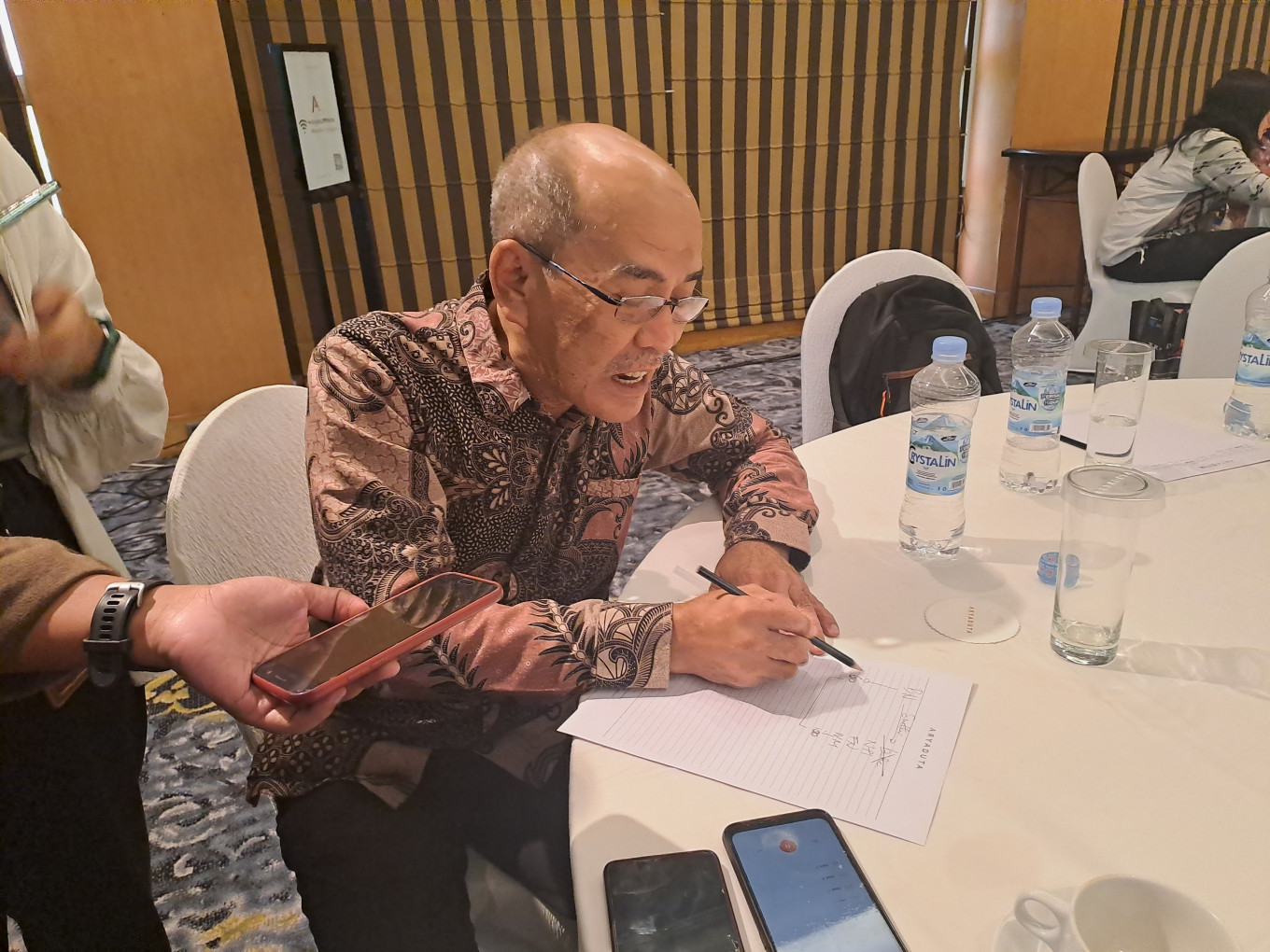Popular Reads
Top Results
Can't find what you're looking for?
View all search resultsPopular Reads
Top Results
Can't find what you're looking for?
View all search results‘Missing link’ in Indonesia’s economic development, says INDEF
Indonesia’s structural transformation from an agricultural to a services-based economy has seen industrial development come up short, according to a Jakarta-based think tank.
Change text size
Gift Premium Articles
to Anyone
I
ndonesia’s structural transformation from an agricultural to a services-based economy has seen industrial development come up short, according to the Institute for Development of Economics and Finance (INDEF).
The country should have gone through a more thorough phase of industrialization before reaching its current economic structure, but data suggest the manufacturing sector has begun to regress without having fully blossomed, the Jakarta-based think tank believes.
“Indonesia is not an agricultural country anymore, but it has yet to become an industrial country. So, there is a missing link in the transformation Indonesia experienced, from [an] agrarian [economy] straight to services, with all the consequences, of course,” INDEF senior economist Faisal Basri said during a seminar on Tuesday.
As a result, Indonesia was experiencing deindustrialization, based on several indicators, the first being the service sector’s contribution to GDP, which had been creeping up and reached a high of 57 percent in 2022, Faisal explained, adding that the sector accounted for 55.8 percent of employment, against the industry sector’s 44.2 percent.
He went on to say that the service sector also dominated in terms of stock market capitalization as it accounted for some 60 percent of the value of companies listed on the Indonesia Stock Exchange (IDX).
Simultaneously, the goods-producing sector had been diminishing, as reflected in its share of loans disbursed by conventional banks, which did not even reach 30 percent of the total, while some 70 percent went to service sector companies, Faisal noted.
In this year’s first half, the service sector also made up 60 percent of the state’s tax income, while the goods-producing sector accounted for just 38 percent.
“So [the structure of the economy] has changed beyond recognition,” said Faisal, adding that a look at the National Medium-Term Development Plan (RPJMN) showed that this shift did “not happen by design”.
By missing out on industrialization, the archipelago would also miss out on a widening of the formal sector, a broadening of the tax base and the creation of sustainable exports insusceptible to supply chain disruption, said Faisal.
The government has been pushing for investment to build downstream industries for the country’s mining and agricultural commodities, and has claimed success on that front.
Faisal claims, however, that the data suggests otherwise, given that 75 percent of imports were auxiliary materials, suggesting that there was a “hollow middle” between Indonesia’s upstream and downstream industries.
“Too bad there is no industrialization strategy, all there is is a downstream policy,” said Faisal, noting that the two were different in essence, as the former aimed for more comprehensive development than the latter.
He said that if the downstream policy agenda stopped at onshore processing of nickel ore into pig iron or ferronickel before proceeding to ship 99 percent of it out to China, then “Indonesia’s downstream is really just there to support China’s industrialization”.
“That’s dumb,” said Faisal, before continuing to explain that Indonesia would get 10 percent at most out of this, while 90 of the value creation would go to China.
Indonesia is home to the world’s largest nickel reserves, and Faisal said Chinese nickel companies in the country were mining the silvery metal at the rate of 1.6 million tonnes per year, giving the country some 13 more years before it runs out.










